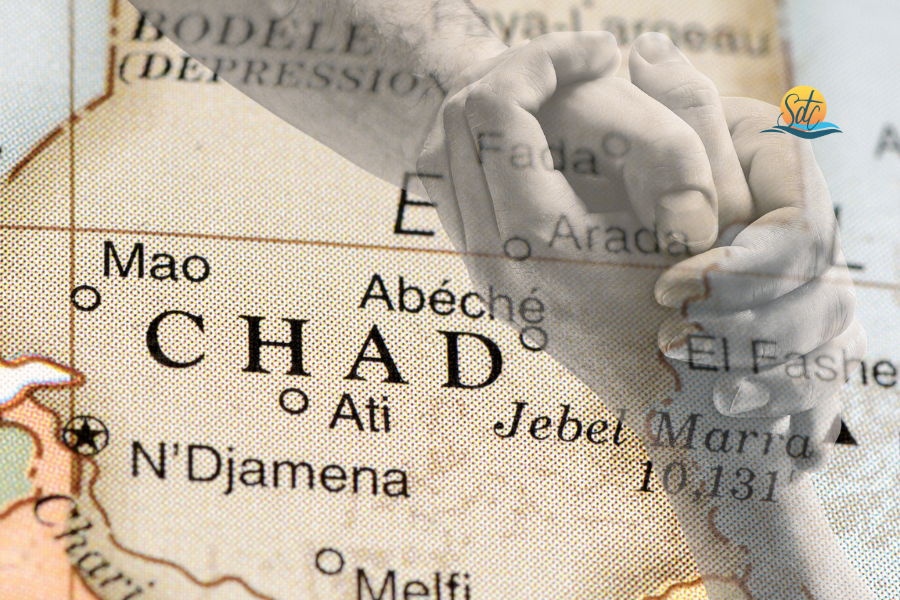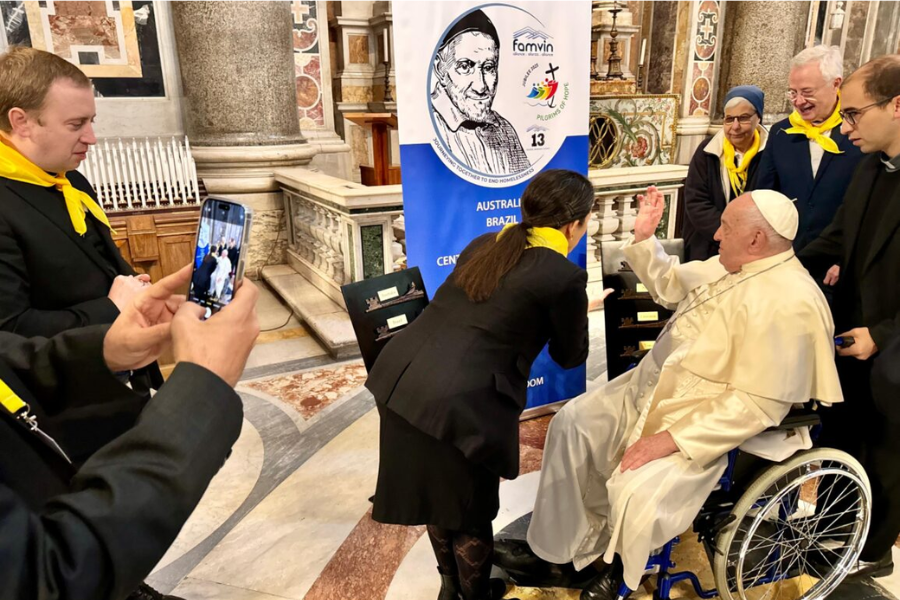Today, November 19, 2023, marks the seventh annual World Day of the Poor. This year’s motto is taken from the book of Tobiah: “Do not look away from the poor” (Tb 4:7).
“A river of poverty flows through our cities and grows larger and larger until it overflows; that river seems to overwhelm us, so much so that the cry of our brothers and sisters who ask for help, support and solidarity rises ever louder.”
We want to bring you, on the occasion of this day, the testimony of Sister Noemi D., Paraguay.
She has dealt not only with the ” river of poverty runs through our cities,” but also with the bed of a real river, to be cleaned up in order to bring, through the promotion of Integral Ecology, new dignity to those living a situation of poverty in their local reality.
Sister Noemi is also part of a laboratory embedded within the reality of the Sisters of Charity of Saint Jeanne Antida: the International Integral Ecology Laboratory.
There are numerous data that tell how climate change, while affecting everyone, has a greater impact on the poorest and most vulnerable segments of the population.
“Hello, I am sister Noemi D.,I am from Paraguay and I am a sister from the Latin American province.
I am a Laudato Si’ animator and I am part of the International Integral Ecology Laboratory.
We are in four countries: Argentina, Brazil, Bolivia and Paraguay.
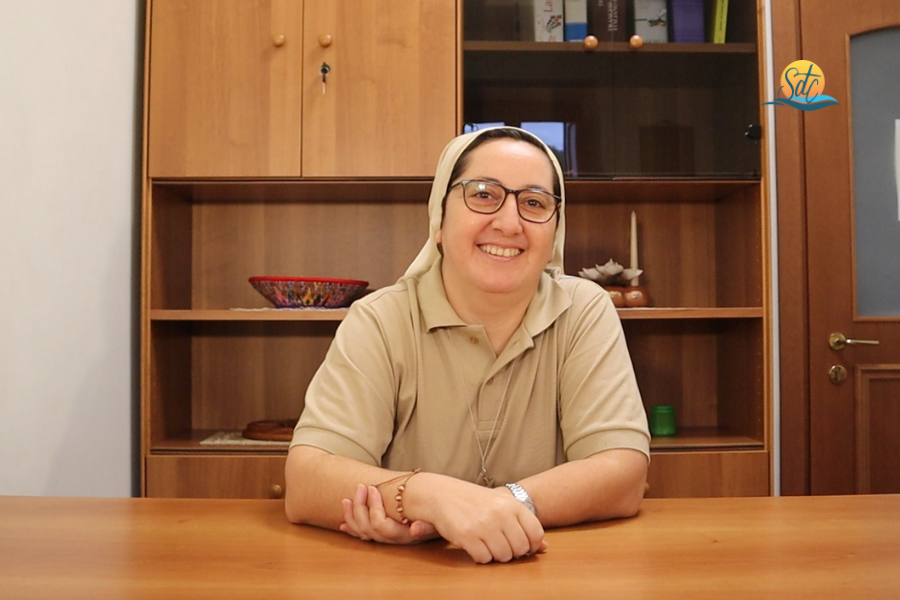
There are three of us who are part of this Laudato si’ team in Latin America. As a Latin American lay team, we are trying to animate the whole province. Because of all the situations that we live in our environment, but also the reality that we live in the world, we are trying to work together with lay people, children and youth to raise awareness about the importance of taking care of the Earth. When we meet with the team, we try to organize small activities that can involve all communities, for example, Laudato Si’ week and Creation Month are very important moments for us to generate this awareness among people.
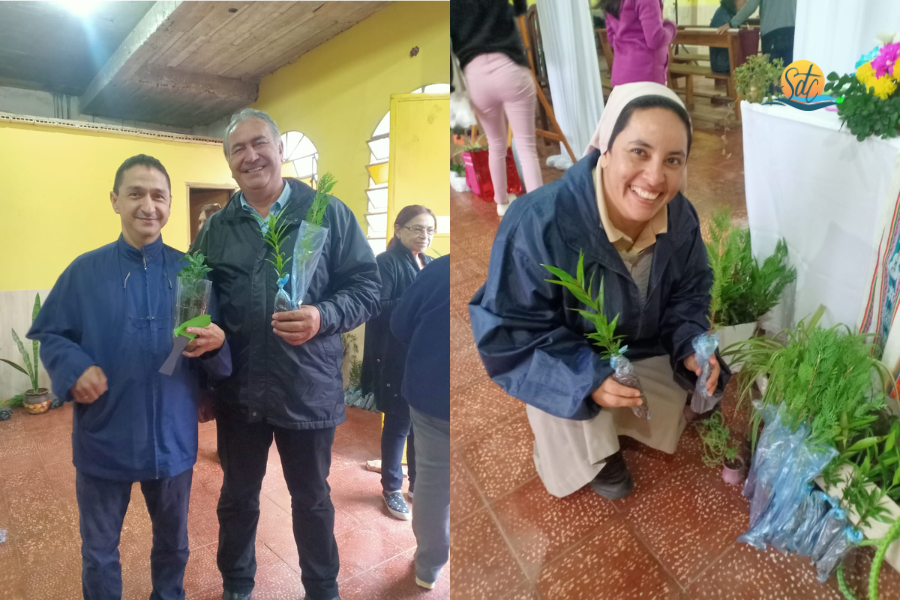
This year we are carrying out different activities such as, for example, organizing Laudato Si’ Masses. We combined Laudato Si’ week with the feast of Saint Jeanne Antide, and we had a nice celebration in the rain. We started the mission with an earlier preparation, where lay people read part of the Laudato Si’ document. Each of the Friends of Saint Jeanne Antida (AJA) then prepared seedlings, which they went and gave to people house by house. These are small gestures that we are doing to raise awareness.
The same thing is happening in Argentina in their work with people who are in prison. From the very beginning, from the situation of detention, they have found themselves thinking about how they can generate this care for the Earth, starting first of all with themselves, but also thinking about those around them. In other words, small movements are being generated to help us enter into this awareness.
I, in particular, work in the Santa Juana Antida center of the Lambare community. This year, together with three coordinators from the neighborhood where the Santa Juana Antida center is, we started a small project that is “the square we have, the square we want”. It’s about people going around the cities collecting cardboard, plastic, copper, anything that can be recycled. So it’s a situation of mostly poor people. The neighborhood is in an area where there is a lot of micro drug trafficking.
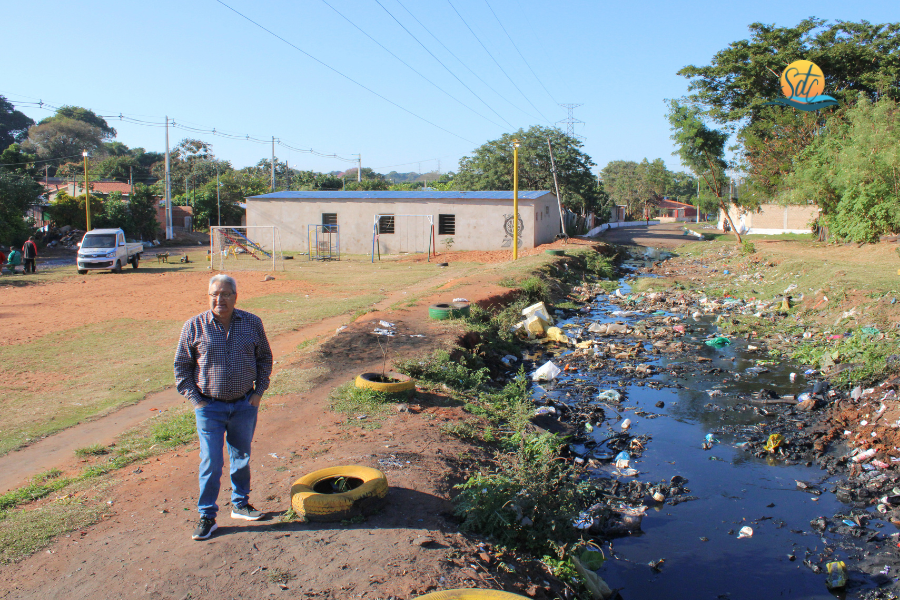
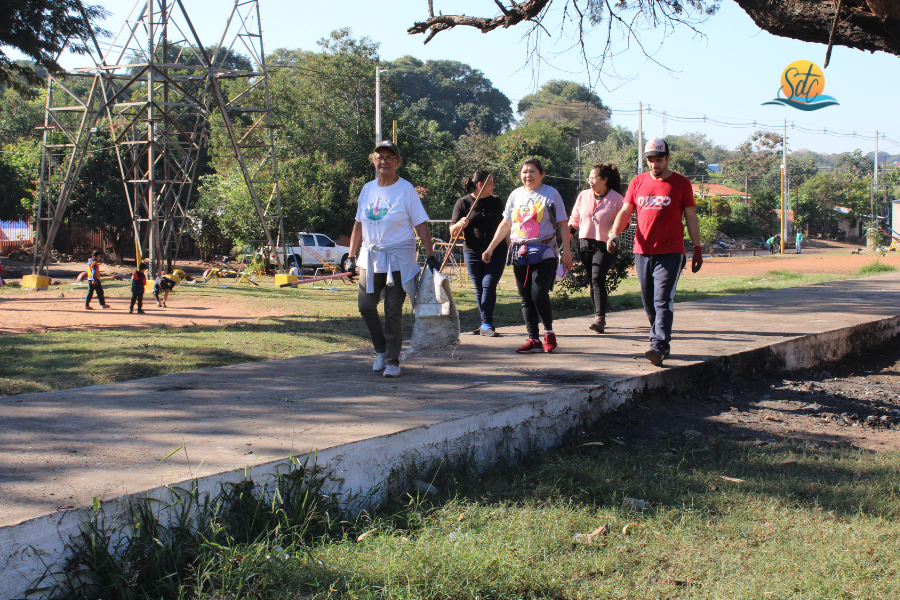
There is a large square where there is a river bed where many people throw what is left of what they do not recycle into the river, and this generates a lot of pollution. When trash accumulates, they usually burn it, and this generates even more damage. That is why we organized three neighborhood committees plus the Santa Juana Antida Center to see what could be done to solve this situation. Monthly, on the fourth Saturday of each month, we organized among neighbors to clean the square in question. After eight months we will have collected more or less 70-75 trucks of garbage.
It seems like a never-ending job, because as we clean, it gets dirty again, but we are convinced that if we insist, we will be able to change the mentality. It is up to adults to change their attitude towards nature. We want to take care of the children, because we dream and want to have a square that is clean of trash, clean of drugs, and can be a space where children can grow up and play safely.
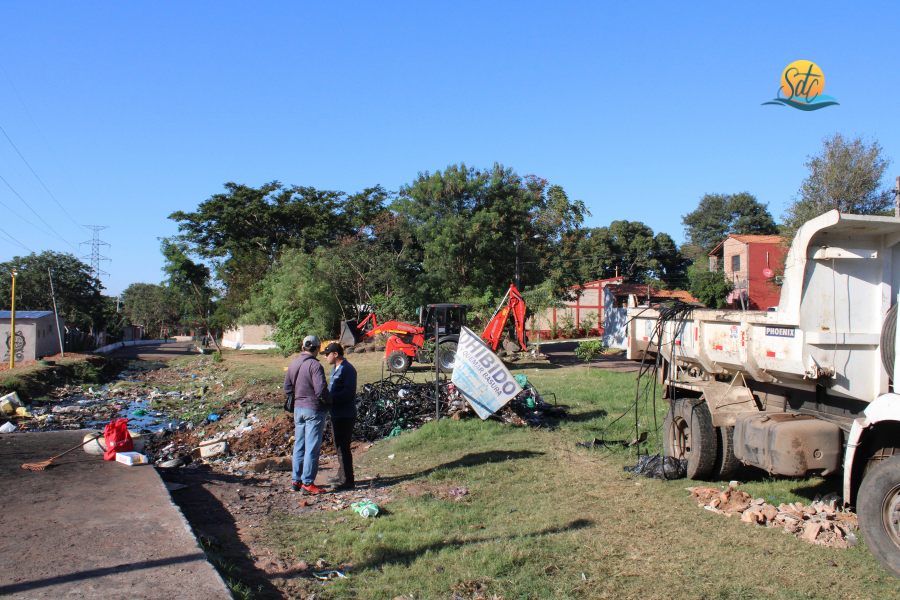
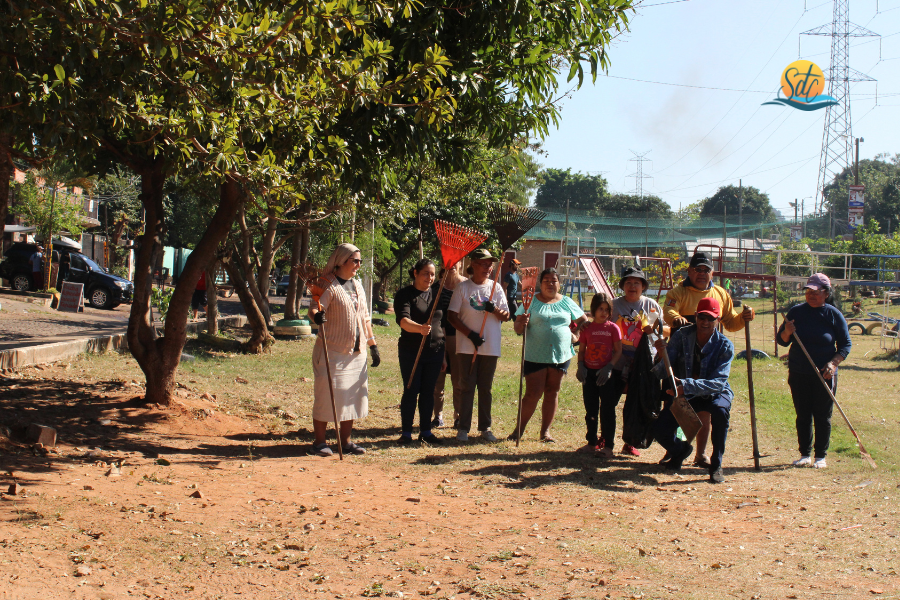
It is not easy, because if we talk about Integral Ecology, it is not only about the care of the trees in the square, but also the people there. There are between 15 and 30 young people and adults who are in a street situation and are drug addicts. We have to take care of them without forgetting that they are our brothers and sisters. It is quite difficult to experience the helplessness in the midst of the rage we sometimes feel at the degradation of drug addicts and children exposed to that reality. We must not forget that they are our brothers and sisters who deserve respect, who must live with dignity.
Reaching this reality and reaching out to these brothers and sisters is a challenge. Once again the issue of the neighborhood is intertwined with need, with poverty, with the drug trade.
On the part of people who depend on both recycling and selling drugs, there is a negative and sometimes aggressive response because we ruin the business they have. On the other hand, there are people who are tired of living in waste and therefore encourage and help us. These two realities coexist.
From the children there is a very positive response. In the Santa Juan Antida center we have 50 children who participate every day: we play with them, we plant, we take care of the garden. Together we recycle materials, we accompany them to discover another way of living. This is hope, this is our truth. In this learning the children find joy and happiness. There is a great commitment and dedication on the part of the sisters and educators who accompany the children. We must help our brothers and sisters, the youngest, the poorest, to live with dignity.
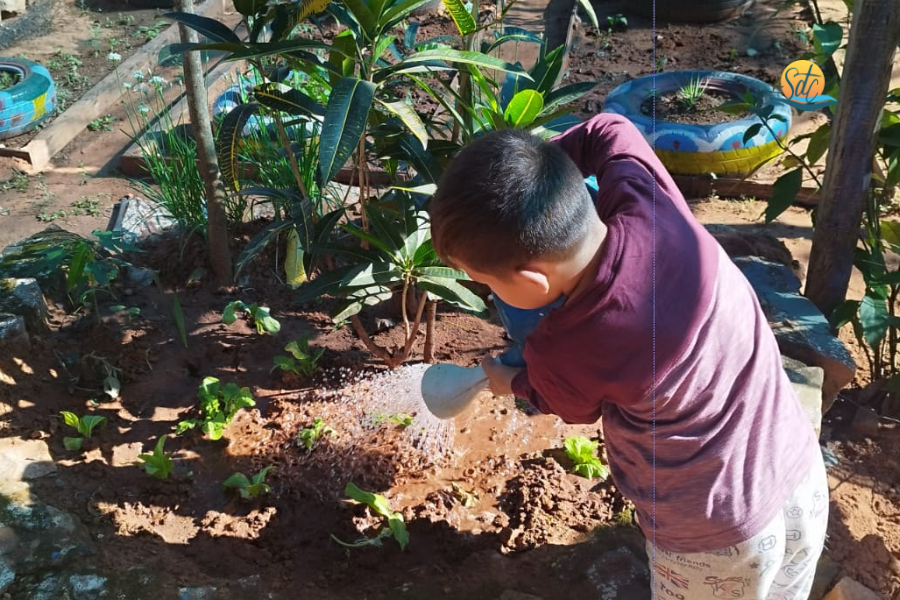
Since we started being part of this community, we have met many people who love us as sisters, who love St. Jeanne Antida, and who, nourished by her charism, also try to express it in their daily lives, loving the poor who are part of it. I think this is all part of Integral Ecology and it is a good thing. We should say that it’s not just caring for animals, it’s not just caring for plants, it’s about discovering that God is in everyone and that God is in everything and calling us to live together as brothers and sisters.
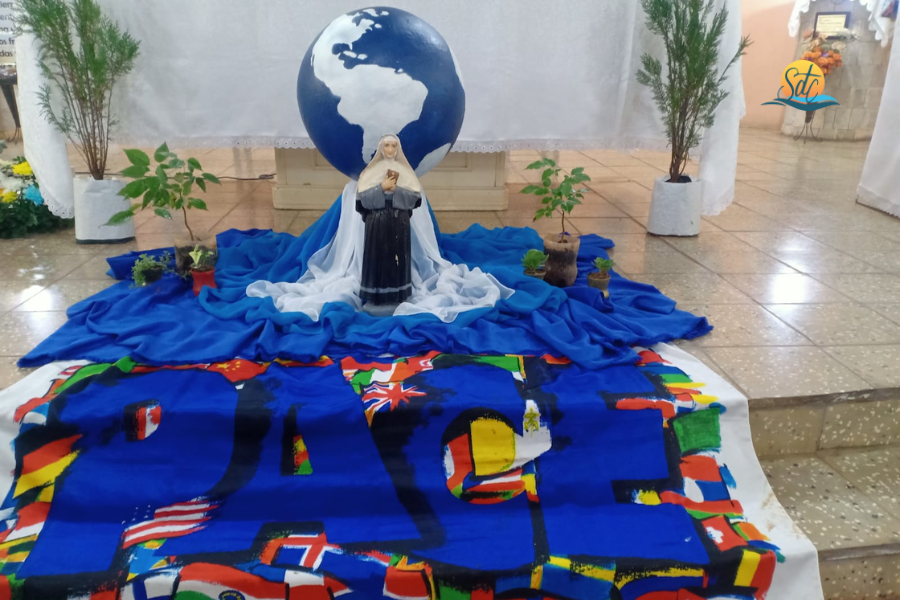
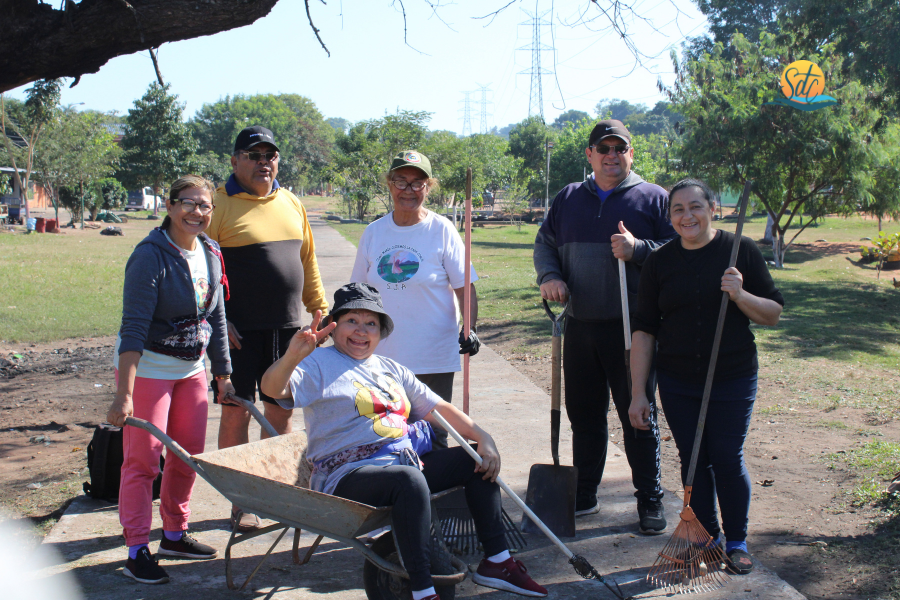
The data tell us that those who suffer most from climate change, environmental disruption, and the destruction of this common home are the poorest. Therefore, we must seek to generate a more dignified environment for our poor brothers and sisters. This involves taking care of the environment, taking care of resources, living on what is simply necessary.
We can make a project together, which is done step by step. This is not just for today, but it is a long-term thing. I feel that it is the joy of holding on to hope, knowing that it is out of our control, but it is from God and it is in God’s hands. So there is also the confidence that this is not just up to me, it is God who will bring it forward. This also gives us peace of mind and joy to continue to discover and work with others.”
Sister Noemi D.
























